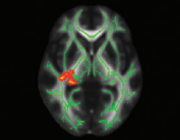Concussion in Women: Short-and Long-Term Health Implications
Type
Since the enactment of Title IX (1972), rates of female participation in sports have grown exponentially. However, despite these growing numbers, women are infrequently asked about risk factors for and consequences of concussion in the ambulatory care setting or during well-woman visits. As well, concussion in women and men usually are not differentiated when considering presentation and adverse outcomes. Data are emerging that suggest concussion not only has long-term health implications but also that the effect of this injury in women compared with men is related to physical differences, cognitive differences (particularly in the verbal, quantitative, and visuospatial domains) and differences in the hormonal milieu. This paper serves as a review of the literature on concussion in the female athlete on PubMed was conducted, with attention to both clinical studies and diagnostic studies. Results suggest that sex and gender contribute to concussion prevalence and severity, presenting symptoms, and recovery. For example, women may present with more drowsiness and sensitivity to noise after concussion than men. As well, increased surveillance appears to be warranted despite obvious behavioral recovery. Results of a longitudinal functional magnetic resonance imaging study in athletes with concussion suggest that neural recovery lags behind behaviorally assessed recovery, and alterations in white matter fiber tracts over the 2 months after injury have been demonstrated. Screening templates are available, and consideration of incorporation of relevant questionnaires into the electronic health record as well as the potential role of imaging will be discussed. In conclusion, inquiry about concussion should be considered a part of the well-woman visit for all patients, especially those engaged in at-risk contact sports. The gynecologic visit and examination should include questions about head injury from sports involvement and a prior diagnosis of concussion.

